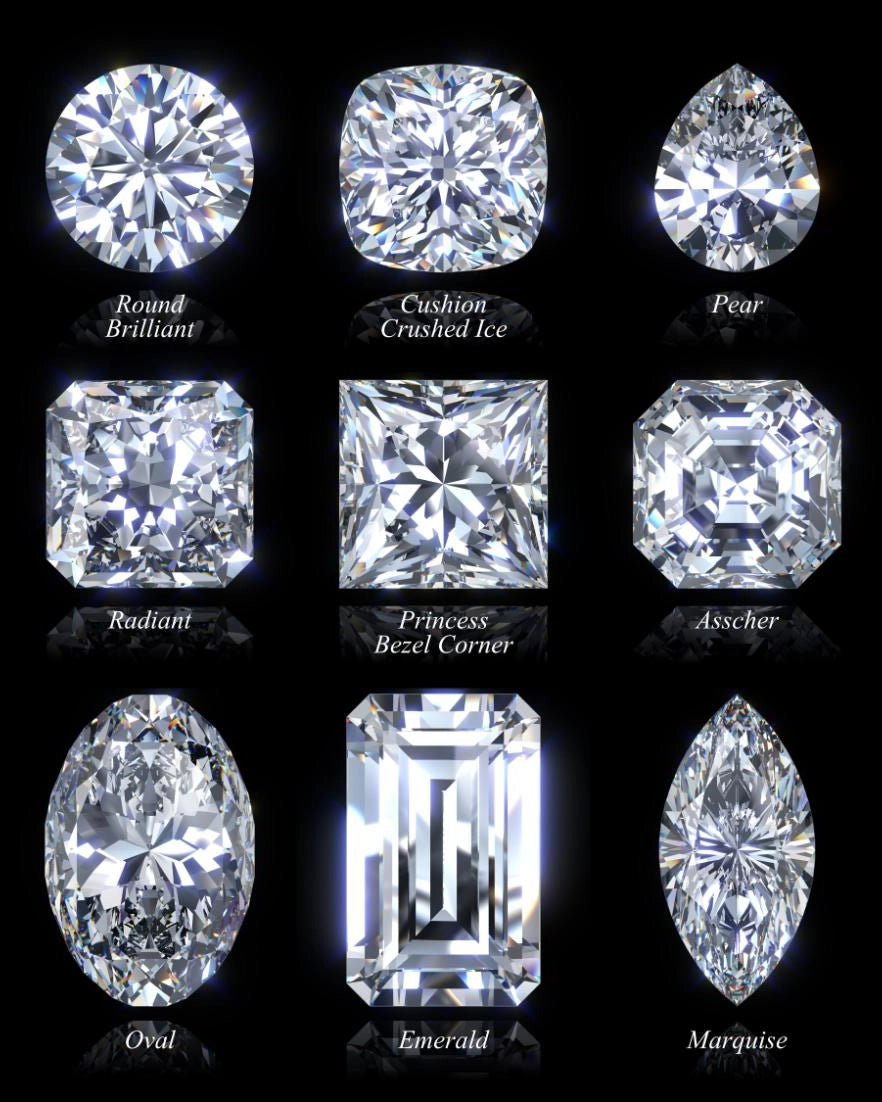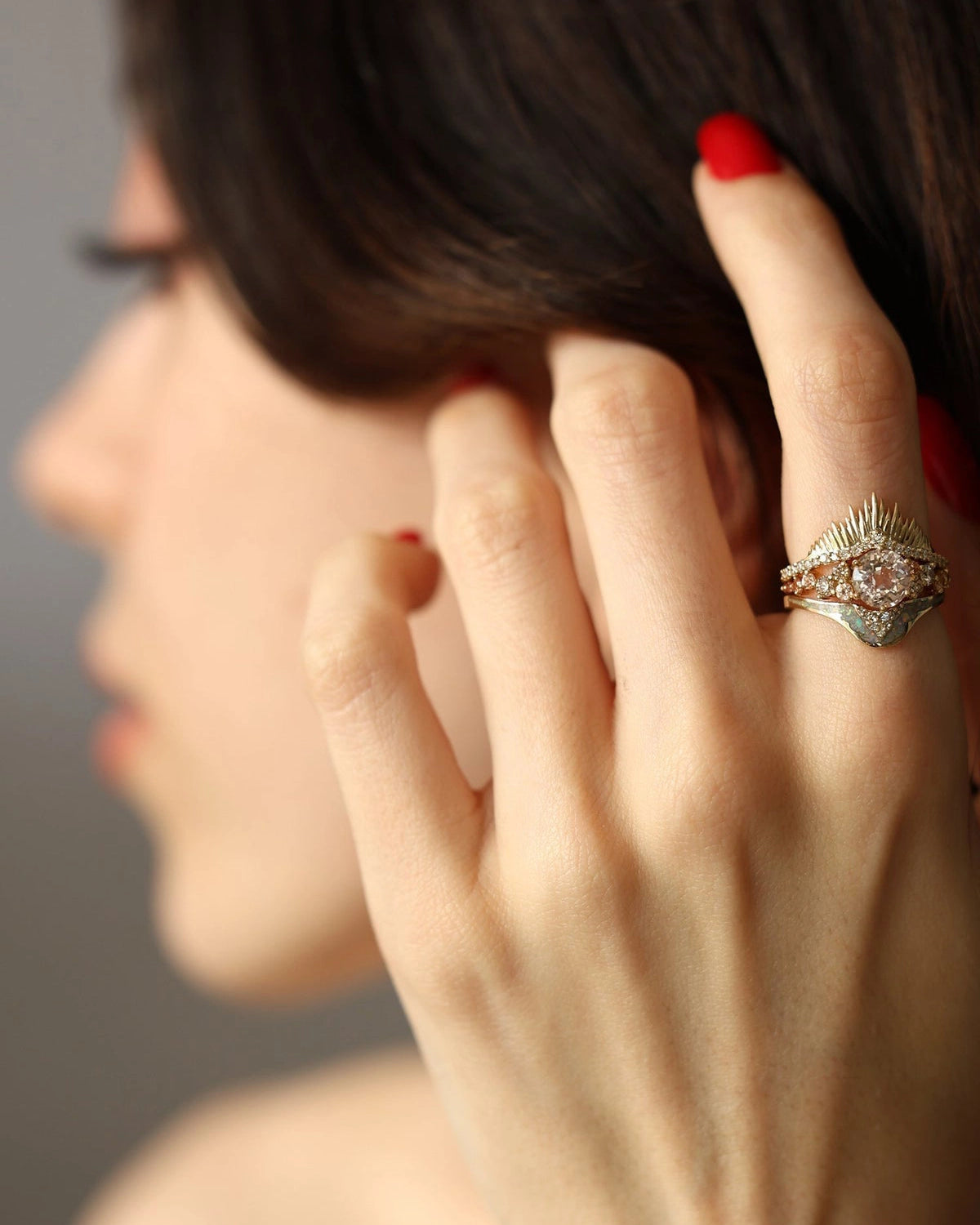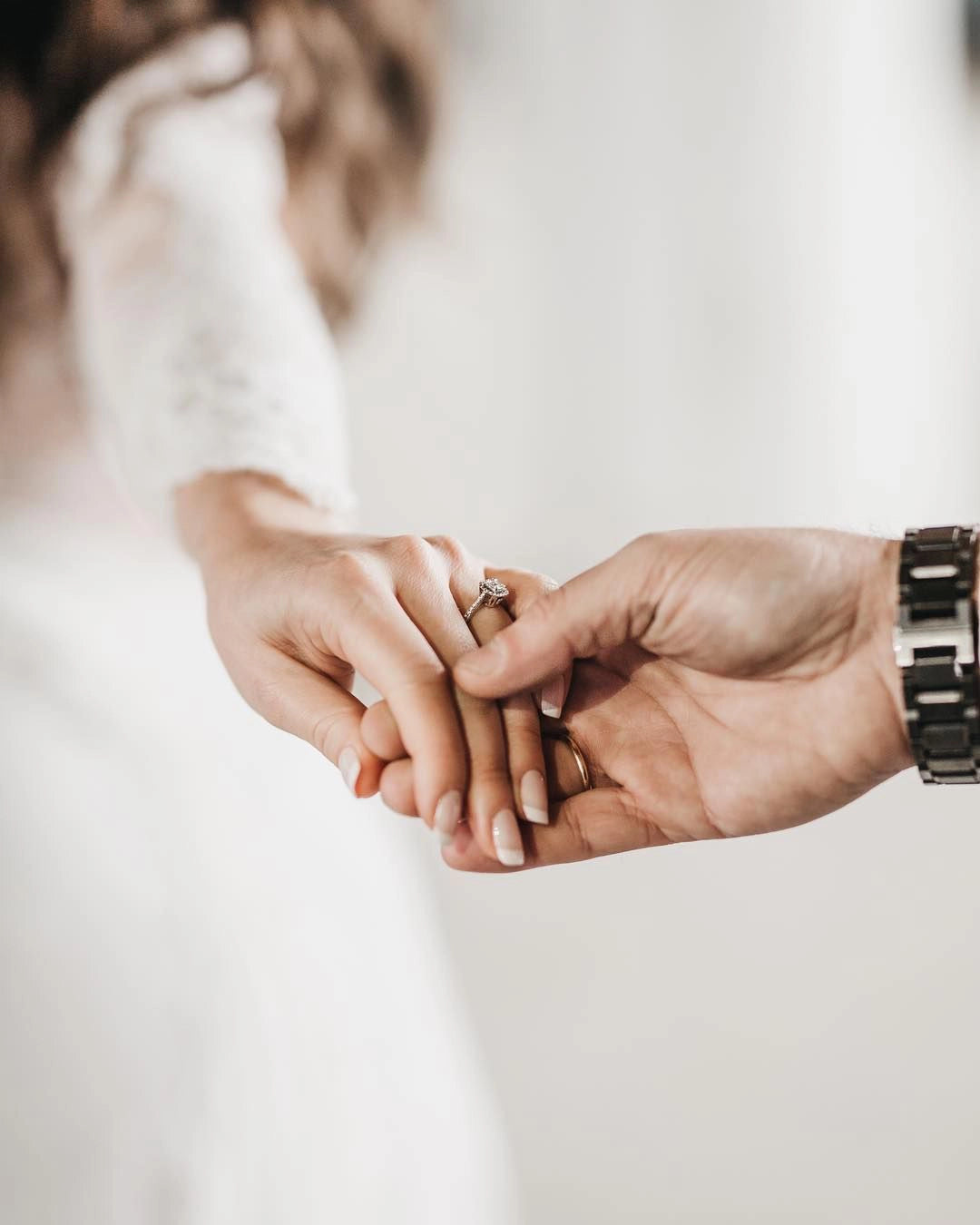A Guide for Professional Jewelry Designers
Choosing the perfect gemstone shape is a crucial aspect of jewelry design. The shape not only influences the aesthetic appeal but also affects the overall value and wearability of the piece. This guide aims to help professional jewelry designers understand the various factors to consider when selecting gemstone shapes, ensuring that every design is both beautiful and practical.

1. Understanding Different Gemstone Shapes
Gemstone shapes are the foundation of any ring design. Each shape has its unique characteristics and visual appeal.
-
Round: The round cut is the most popular and classic shape. Known for its excellent brilliance and symmetry, it reflects light beautifully and suits a wide range of ring settings.
-
Oval: The oval shape offers an elegant, elongated appearance, making fingers look longer and slimmer. Its versatility makes it suitable for both traditional and contemporary settings.
- Kite: The kite cut is a distinctive and modern shape, resembling a diamond-shaped kite with pointed ends and longer sides. This unique geometric design adds a contemporary edge to any ring setting. Ideal for those seeking an unconventional look, the kite cut's sharp angles and clean lines make it perfect for avant-garde and innovative jewelry pieces.
- Hexagon: The hexagon cut features six straight sides, creating a bold and symmetrical shape that stands out. This cut offers a modern and edgy look, combining geometric precision with a striking visual impact. Its versatility allows it to be used in both minimalist and elaborate settings, making it a trendy choice for contemporary jewelry designs.
-
Princess: A modern and sophisticated choice, the princess cut features sharp, defined edges. It’s renowned for its brilliance and contemporary look, fitting well in geometric and sleek designs.
-
Emerald: The emerald cut is characterized by its step-cut facets, providing an understated elegance. This shape emphasizes clarity over brilliance and is perfect for highlighting high-quality gemstones.
-
Marquise: With its unique, elongated shape, the marquise cut creates an illusion of a larger stone. It’s perfect for those seeking a dramatic and distinctive look.
-
Pear: Resembling a teardrop, the pear shape is versatile and suits various ring designs. It combines the best features of the round and marquise cuts, offering both brilliance and elegance.
-
Heart: The heart shape is a symbol of romance and love. It requires expert cutting to achieve a balanced and symmetrical appearance, making it a distinctive and meaningful choice.

-
Cushion: With its vintage feel and rounded corners, the cushion cut combines a classic look with modern brilliance. It’s an excellent choice for antique-inspired designs.

-
Asscher: Similar to the emerald cut, the Asscher shape features step-cut facets but with a square shape. Its deep pavilion creates extra brilliance, making it a unique and eye-catching option.

-
Radiant: The radiant cut combines the brilliance of the round cut with the elegance of the emerald cut. Its versatility makes it suitable for a variety of settings.

2. Matching Gemstone Shape with Ring Style
The shape of the gemstone should complement the overall style of the ring.
-
Classic Styles: Traditional ring designs often feature round, princess, and emerald cuts. These shapes offer timeless elegance and appeal to a wide audience.
Verdant Monarch Ring-Princess Cut Moss Agate Ring
-
Modern Styles: Contemporary ring designs benefit from unique shapes like pear, marquise, and radiant. These cuts add a touch of individuality and modern flair.
Pear Cut - Morning Glory Inspired Alexandrite Ring Set 2pcs
Marquise Shaped Moss Agate Engagement Ring
-
Vintage Styles: For vintage-inspired designs, antique cuts like cushion and Asscher are ideal. These shapes evoke a sense of nostalgia and charm.
3. Considerations for Different Finger Shapes and Sizes
Selecting the right gemstone shape also involves considering the wearer’s finger shape and size.
-
Finger Length and Shape: Long fingers can carry off elongated shapes like oval, marquise,kite,and pear, which enhance their length. Short fingers benefit from shapes like round and princess, which can make them appear longer and more balanced.
 Oval Moissanite Cluster Floral Engagement Ring Set
Oval Moissanite Cluster Floral Engagement Ring Set
Marquise Moissanite Ring-Evanthe
Kite Cut Moss Agate Chevron Engagement Ring Set 3pcs
Gorgeous Pear Cut Moissanite Engagement Ring Set 3pcs
Ruby Engagement Ring - Crimson Bloom
-
Comfort and Wearability: Practical considerations include the comfort of the ring in daily wear. Smooth edges, such as those found in round and cushion cuts, are less likely to snag on clothing and are more comfortable for everyday wear.
4. Symbolism and Personal Meaning
Gemstone shapes often carry symbolic meanings and can add personal significance to a ring.
-
Symbolic Meanings: Different shapes convey different messages. For example, round stones symbolize eternal love, heart shapes represent romance, and emerald cuts signify sophistication and elegance.
 Moss Agate Engagement Rings Set LeafRing - Lushfoliage
Moss Agate Engagement Rings Set LeafRing - Lushfoliage
-
Personalization: Incorporating personal meaning into a ring design can be achieved by selecting shapes that resonate with the wearer. For instance, a client’s birthstone in a shape they prefer adds a unique and personal touch to the design.
5. Quality and Practicality
The quality of the gemstone and its practicality for everyday wear are important factors to consider.
-
Cut and Clarity: The shape of the gemstone affects how light is reflected. Brilliant cuts like round and princess maximize light reflection, enhancing the stone's sparkle. Step cuts like emerald and Asscher emphasize clarity, making them ideal for high-quality gemstones.
-
Durability: Different shapes have varying levels of durability. Shapes with sharp edges, such as princess and marquise, are more prone to chipping and may require protective settings. Round and oval cuts are generally more durable due to their smooth edges.
6. Trends and Market Preferences

Staying updated with current trends and understanding market preferences can guide designers in choosing popular shapes.
-
Current Trends: Trends in gemstone shapes can vary, influenced by celebrity engagements and fashion movements. Staying aware of these trends helps in creating designs that appeal to contemporary tastes.
-
Regional Preferences: Cultural and regional differences can also impact shape preferences. For example, certain shapes may be more popular in specific countries or cultures, and understanding these preferences can help in catering to a diverse clientele.
7. Customization and Innovation
Embracing customization and technological advances can set a designer apart in the industry.
-
Bespoke Designs: Creating custom shapes and unique designs allows for a personalized experience. Collaborating with clients to design bespoke pieces ensures that the final product is unique and meaningful.
-
Technological Advances: Utilizing technology such as CAD (Computer-Aided Design) and 3D printing can enhance precision and creativity in gemstone shaping. These tools allow designers to experiment with new shapes and perfect their designs before production.

Conclusion
Choosing the perfect gemstone shape involves balancing aesthetics, practicality, and client preferences. By understanding the characteristics and implications of different shapes, designers can create rings that are both beautiful and functional. Embracing trends and technology further enhances the ability to craft unique and personalized pieces.
Additional Resources
-
Recommended Reading:
- "The Complete Guide to Gemstones" by Antoinette Matlins
- "Gemstone Settings: The Jewelry Maker's Guide to Styles & Techniques" by Anastasia Young
-
Tools and Software:
- RhinoGold for CAD design
- GemVision Matrix for jewelry modeling
- 3D printers like Formlabs Form 3 for prototyping
By following this comprehensive guide, professional jewelry designers can confidently choose the perfect gemstone shape for any ring, ensuring both beauty and practicality in their designs.






















